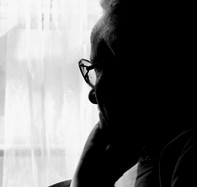Social isolation in people with mental illness
People with mental health problems can experience social isolation affecting all types of relationships, whether with friends or family. Social isolation can be a result of the symptoms of many mental health problems as well as a consequence of the associated stigma, disadvantage and social exclusion that people with mental illness can face. The problem may affect people who are living with others, where it may not be apparent, as well as people who are living alone.
According to the Australian National Survey of Mental Health and Wellbeing, almost one-third of Australians who have psychotic disorders are living alone and 39% of these people have no ‘best friend’ with whom they can share thoughts and feelings. Although a proportion of people with mental illness withdraw from others as a way of managing symptoms such as paranoia, persistent auditory hallucinations or feelings of depression, poor energy and low self-worth, it is important to recognise that the majority desire more connections with others. In the above survey, 45% of participants felt they needed ‘good friends’.

